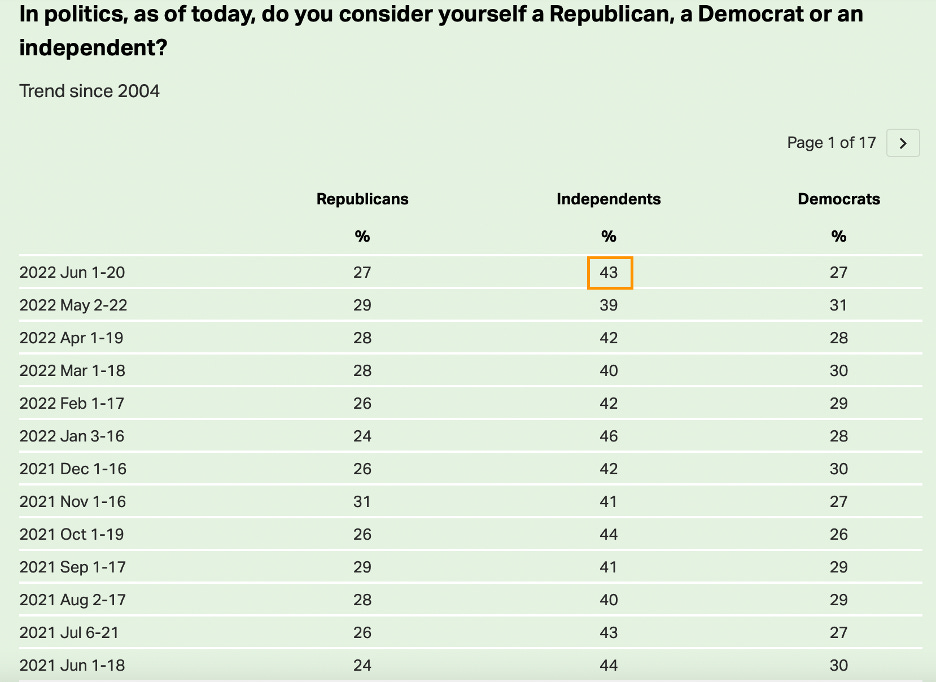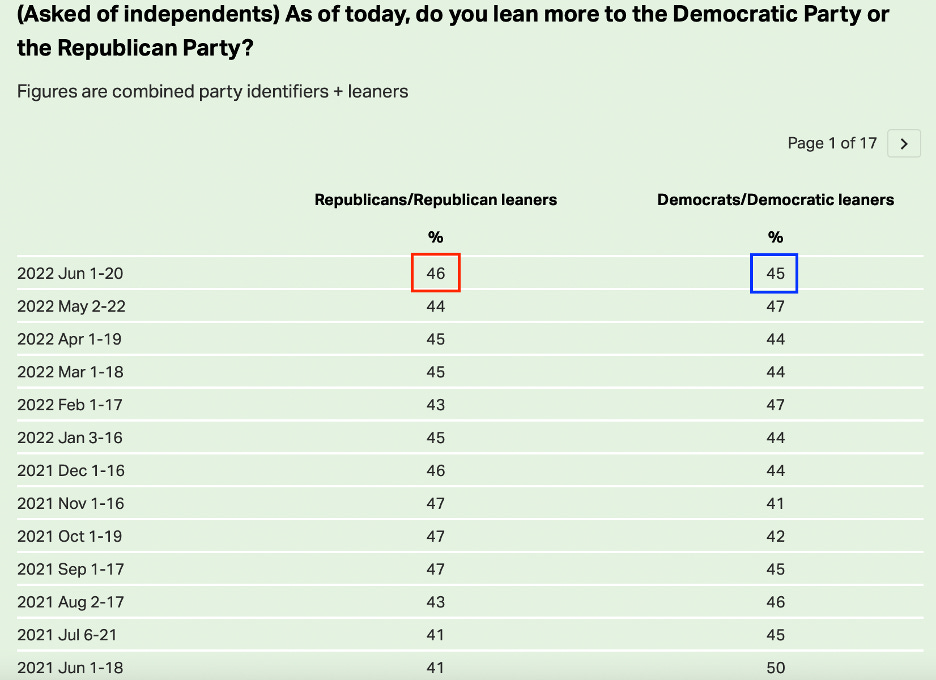It’s Time to Declare Independence from America’s Two Political Parties
The parties insist everyone must toe the line and hold the same ideological views. If the parties won’t change, then voters in the middle should just reject them.
Nothing ever changes with America’s broken political system. Despite reams of evidence that an increasing proportion of voters despise both political parties and want to see internal changes or alternative party choices, neither Democrats nor Republicans have gotten the message.
Republicans vie to elevate the dimmest bulbs in the country to office, pledging loyalty to a corrupt former president who actively sought to overturn an election he lost. In turn, Democrats vie to elevate those who live in a fantasy world where things like high gas prices or violent crime aren’t real problems while mystical structural forces and improper language use are keeping Americans in a permanent state of oppression.
Normal Americans—a mix of traditional conservatives, liberals, and moderates—look at the two parties and just shake their heads. Out to lunch. Whack jobs. Extremists. Arrogant blowhards. Clowns who don’t understand my life. They’re right. The two parties have failed to adequately represent the views of ideologically unaligned Americans. And the two parties don’t particularly care to change this situation as they make yet another call to the partisan ramparts ahead of the 2022 elections.
Pundits like to say we are a nation divided between red and blue, separated along partisan lines over abortion, guns, gender, climate, and economic issues. In reality, America is a 30-30-40 nation split between partisan diehards on the left and right and a large pool of people who don’t fit into either one of these categories.
According to Gallup trend data, no more than 3 in 10 Americans today identify as either a Democrat or Republican, respectively, while roughly 4 in 10 call themselves Independent with equal proportions of these voters leaning Democratic and Republican when forced to choose.
Political scientists argue that this independence is not real and that these voters are just embarrassed by party labels even as they mostly vote one way or another. But what else are self-identified Independents supposed to do? They only get two viable choices, if at all, and the only other option is not to participate.
But imagine if there were two additional parties—one on the center-left and one on the center-right—that were given fair ballot access with resources to compete. Would these Independent voters who lean one way or another bolt given the chance? Probably a good chunk of them would. Or what if we had more competitive districts, open and nonpartisan primaries, and ranked choice voting to help break the “two-party doom loop”? Then we’d have a situation where the two main parties would have to genuinely fight for the middle portion of voters who don’t accept the down-the-line economic and cultural ideologies of the big dogs. The parties would be forced to be more tolerant of people with different personal views and positions on hot-button issues rather than insisting on fealty across the board. They would need to recruit and field a diverse array of candidates from different backgrounds who are not beholden to ideologically predetermined positions. Perhaps with more competition the parties would adjust their governing visions to better represent a “pro-worker, pro-family, pro-America” centrist agenda that is economically nationalist and culturally moderate.
Unfortunately for America, the two parties aren’t likely to allow for real competition anytime soon.
Ideologically homeless Americans will therefore need to protect themselves and their sanity by declaring independence from the two parties. If the parties won’t voluntarily shift to more sensible positions designed to help all people in all parts of the country succeed, then American voters in the broad middle should take control of their own lives, join forces, and make the two parties come to them.
There’s vast unoccupied terrain in American politics with lots of unrepresented voters. A political party that chooses to inhabit this middle space on both economic and cultural issues will certainly reap electoral benefits. Alternatively, party leaders who shun this middle ground should expect more and more Americans to ignore their pitches and reject their candidates.
A successful political future that truly represents all Americans will be less doctrinaire, more independent, and grounded in equal dignity and rights for all people with economic policies that advance America’s interests.
[Editor’s note: The Liberal Patriot newsletter will be published on Tuesday and Thursday through Labor Day.]





